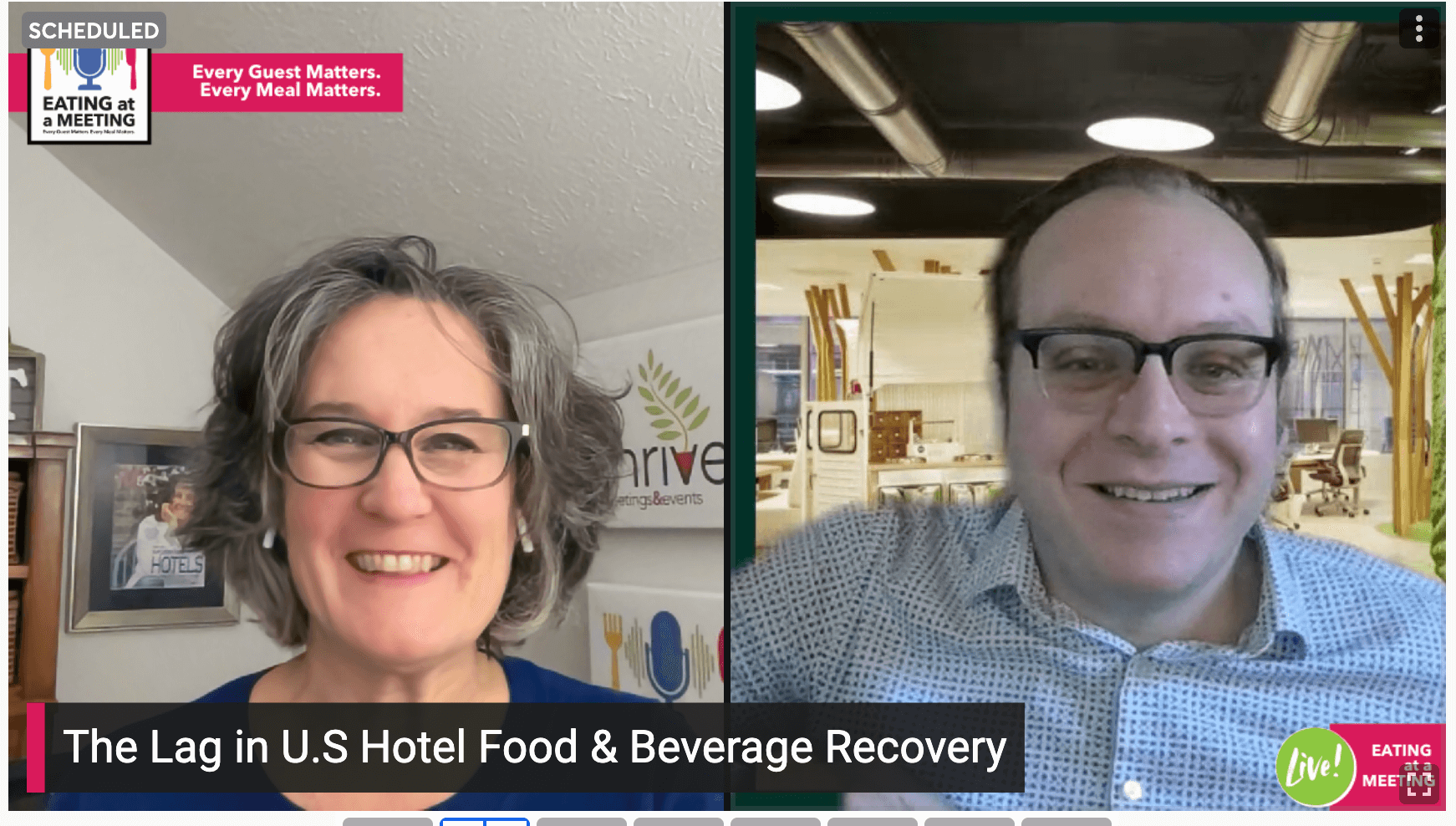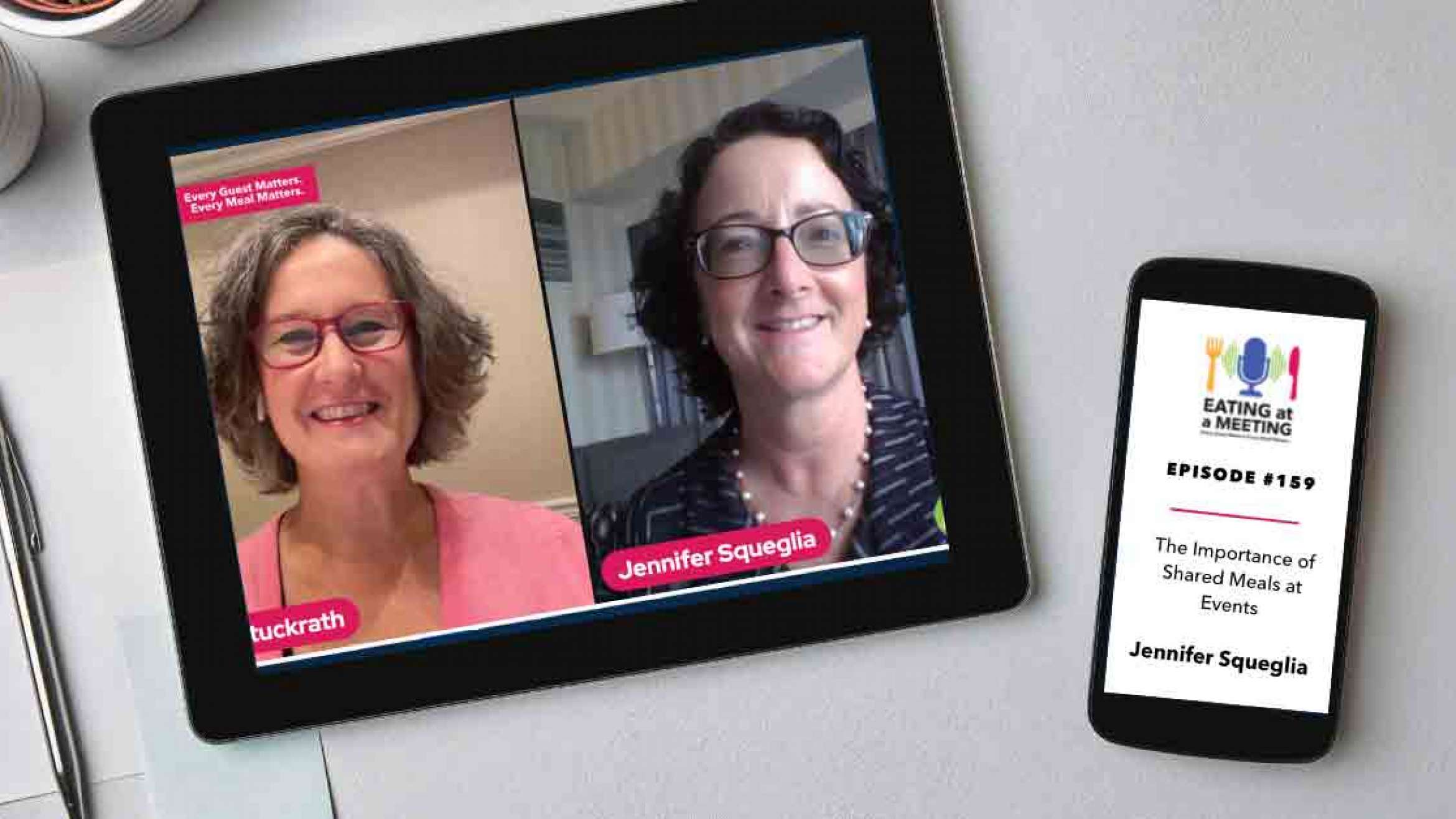The Lag in U.S Hotel Food and Beverage Recovery
Eating at a Meeting Podcast Episode #183
 Hotel Food and Beverage Post Pandemic
Hotel Food and Beverage Post Pandemic
When I saw CBRE’s September 2022 Hotel Horizons® forecast in December 2002 stating that hotel food and beverage (F&B) recovery was lagging from pre-COVID levels while rooms revenue per available room (RevPAR) was exceeding 2019 annual levels in 2022, I wanted to find out more.
Especially when food costs are increasing, and meeting planners are spending even more on their already largest expenditure.
I’m excited that Andrew Hartley of CBRE Hotels Advisory, who studied and analyzed F&B department revenues, expenses, and profits of 1,228 properties for the report, will join me on #EatingAtAMeeting LIVE to talk about what he’s seeing in the trends for U.S. hotel food and beverage departments.
Please join us as we discuss these F&B programs — where they were before the pandemic and what they look like in the post-pandemic environment, including what is attributing to the lag and industry standards that have been eliminated as a result of the pandemic.
Andrew Hartley
Andrew Hartley is a Senior Vice President at CBRE Hotels Advisory with twelve years of hospitality experience. Starting in Food and Beverage operations, he has morphed into operational and real estate consulting on hotels, resorts, event centers, and other complex assets nationally and globally.
What do safe, sustainable, and inclusive food and beverage experiences look like to you?
Safe F&B experiences should be mindful of cleanliness, quality, accountability, and proper delegation. Sustainable experiences are inclusive of locally sourced and seasonal ingredients, ‘green’ materials and containers, and mitigating over storage and waste. Inclusive experiences incorporate well-sourced and prepared items to accommodate diverse tastes, cultural standards, and allergies without unequal standards.
Do you have an example of a situation that negatively affected you and other individuals or groups’ food and beverage experience?
This may sound petty or neurotic but most of my least pleasant experiences stem from the company I am dining with rather than the establishment. For example, without identifying a specific situation, my dining experience is generally downgraded when someone orders the same meal as me. I usually will go out of my way to change my order. To me it’s as taboo as wearing a white dress to someone else’s wedding.
What is a best practice you use/or have seen to create safe, sustainable, and inclusive F&B experiences?
Since I am more focused on hotel development and consulting, I tend to recommend F&B establishments to be designed and operated as efficiently spaced, dual-purposed for dining and events and serving quality and focused menus. Moreover, formal and traditional service standards are less important relative to the quality and experience offered.
What do you wish people knew about what you do?
I am a hospitality consultant. I primarily work on general advisory in concepting and underwriting hotel, resorts, and conference center developments. My range of services includes market studies to developer/operator RFPs. As I learned after my transition from operations, I am being exposed to a diverse set of complex assets and locations. While having a certain pride in my operational background, most of my advisory and guidance is sourced from interviewing much smarter and experienced operators in the field. This profession is humble and always a learning process.
Just for fun…What are your favorite food and drink?
It’s easier to say what I don’t like. Potato salad.
My general (always say yes!) favorites tend to be Mexican or Middle Eastern food. Pale lagers and whiskey.
Links:
Connect with Andrew: LinkedIn
Check out other featured guests on the Eating at a Meeting podcast
Eating at a Meeting is part of the Nitty Grits Podcast Network.



